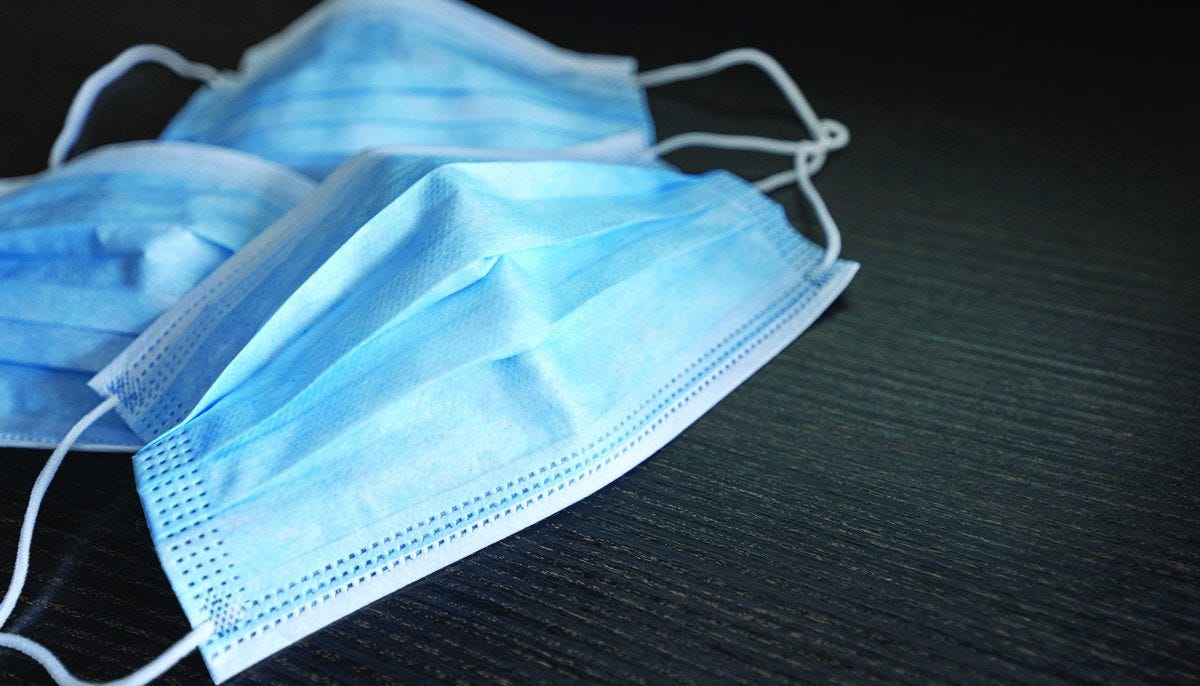Does the new study on face masks show they prevent respiratory illnesses?
A new randomised trial in The BMJ is being touted as proof that surgical face masks are effective at an individual level for reducing respiratory infections.
Whether to wear a face mask to prevent respiratory illnesses has been one of the most divisive debates during the pandemic.
After a Cochrane review in 2023 found that face masks made “little or no difference” to the spread of respiratory viruses, the issue became highly politicised.
Tom Jefferson, lead author of the Cochrane review, told me “There is just no evidence that they make any difference. Full stop.” The interview was picked up by media such as the New York Times and CNN, sparking an international furore.
New York Times columnist, Zeynep Tufekci pushed back in her own column arguing that despite no high-quality data, we could still conclude from less rigorous observational studies, that masks do in fact work.
Well-known science historian and co-author of Merchants of Doubt Naomi Oreskes agreed with Tufekci, claiming the public had been “misled” by the Cochrane review because it prioritised high-quality studies and excluded less rigorous ones
When former CDC Director Rochelle Walensky was challenged about her controversial mask mandates in light of Cochrane’s findings, she lied to Congress claiming that the review had been “retracted” when it had not.
Then, in September 2023, former White House physician Anthony Fauci told CNN, “There’s no doubt that masks work.” Fauci said that while studies might show masks do not work at a population level, they do work “on an individual basis.”
Could this be true?
Well, a new study published in The BMJ is being touted as proof that face masks are effective at an individual level for reducing respiratory infections.
The study
Researchers in Norway performed a ‘pragmatic’ randomised trial in the off-peak period of “the normal influenza season” to determine if wearing a surgical face mask in public could reduce the risk of contracting a respiratory illness.
This study was sufficiently powered to detect a difference in outcomes in a real-world setting.
Over a 14-day period (between Feb-April 2023), 4647 participants were randomly assigned to either wear a surgical mask in public places (shopping centres, streets, public transport) or not to wear a surgical face mask in public places (control group).
The group wearing masks showed an absolute risk reduction of ~3 percent in “self-reported symptoms consistent with respiratory infection” (8.9% mask group; 12.2% control group, 95% CI 0.58 to 0.87; P=0.001).
The authors concluded, “Wearing a surgical face mask in public spaces over 14 days reduces the risk of self-reported symptoms consistent with a respiratory infection, compared with not wearing a surgical face mask.”
In an accompanying editorial, the authors of the study anticipated their findings would inflame an already divisive debate, and called for more “open and nuanced discussions” about face masks.
“We know exactly what to expect,” they wrote.
“Mask non-believers will describe the effect size as too small to be of interest, and they will intensively highlight any source of potential bias that might have inflated the results in the wrong direction. Of course, the mask believers will do the same but in the opposite direction.”
The authors said they would welcome “a nuanced debate around the potential biases and the interpretation” of the study findings, so here I go….







